EBP
Today’s world is dominated as virtually never before by two antagonistic forces. Innovation and comfort are two conditions that seldom coincide. Rather they work against each other and in our life today, in this society and especially in the Swiss context they represent a conflict that is frequently underestimated.
Whereas innovation rests to a large extent on technology, and therefore on the belief that it is unobtrusively there for us at all times, the aspect of comfort is seen as the standard, as the status quo, and also potentially stands for an imagined sense of ease, for a safeguarding of what has already been achieved.
The circumstances of and particular form taken by innovation often erode the idea of continuity and its standard. For this reason in the Swiss understanding of sustainability, sufficiency, as a third pillar of innovation alongside efficiency and effectiveness, is probably the most unpopular criterion. Now as before, reducing things to the merely adequate is underlined by an ethically moralising necessity, if we want to enjoy the same possibilities in the future. Alien to this approach is the idea that precisely here the possibility of leaving out could be associated with the notion of participation and the exercising of influence, with a responsibility, in other words, that could be fun.
Tackling this antagonism openly and directly was our point of departure in planning the extension to the company headquarters of Ernst Basler AG.
From the outset, old and new presented an ambiguity that was lying permanently in wait and that could therefore hardly be relied upon in any systematic way. The old, believed to be secure, threatened either to suddenly break away or else, by offering fervent resistance, show that it wanted to stay. Thus the conceptual handling of new and old remained connected to the issue of ongoing negotiation. The result is to some extent a hybrid, a compound that gradually began to resolve the old antagonism. A new experience for us. Out of resistance and dichotomy a relationship is formed in which something of everything is present at all times, thereby, for systemic reasons, forming a dependent relationship. A union of epochs.
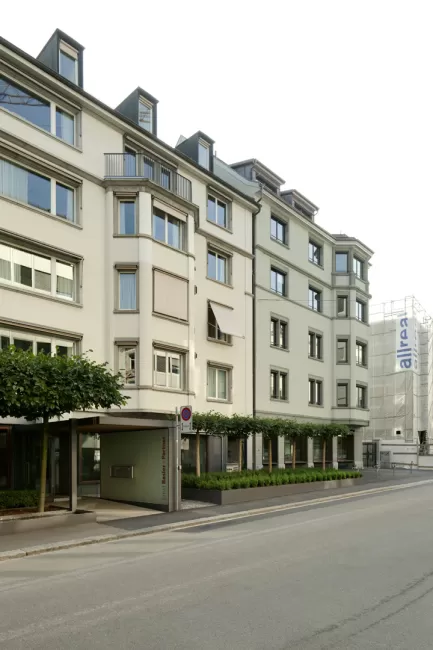
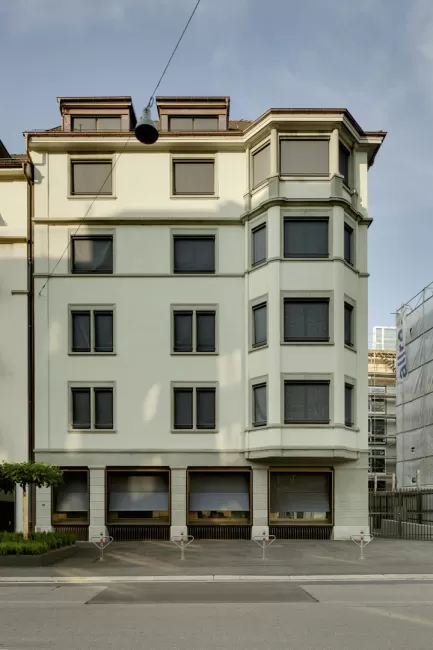

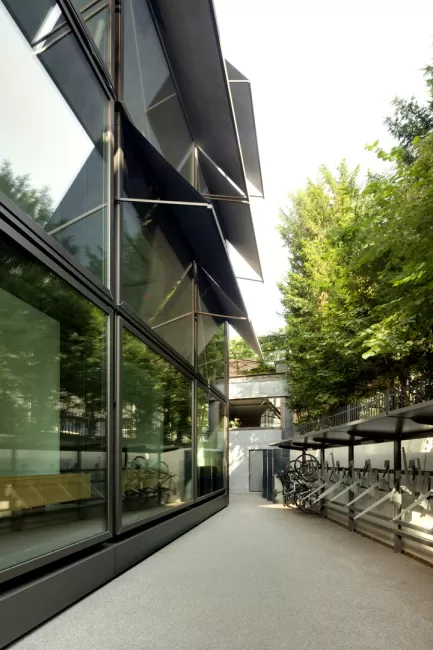
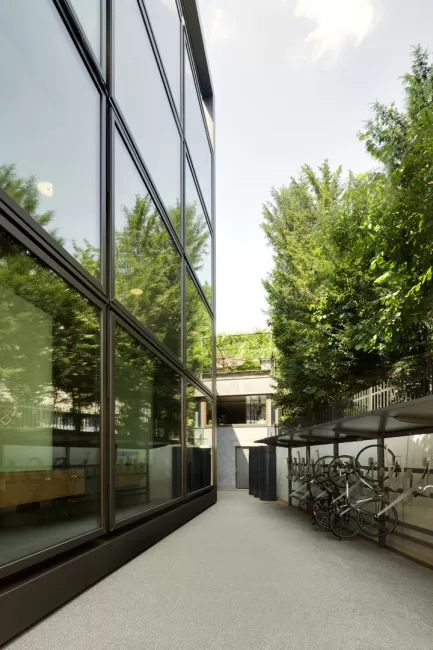
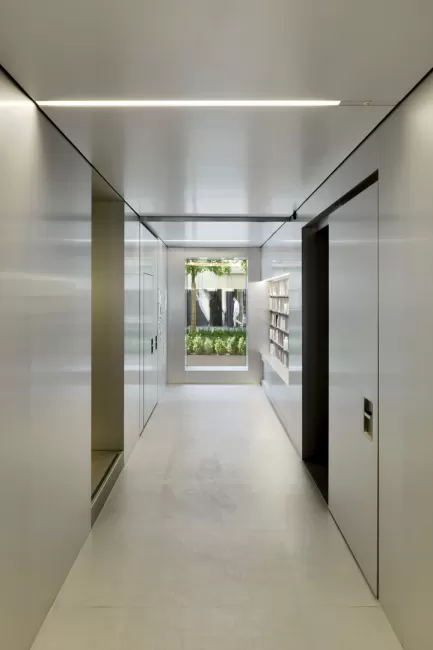
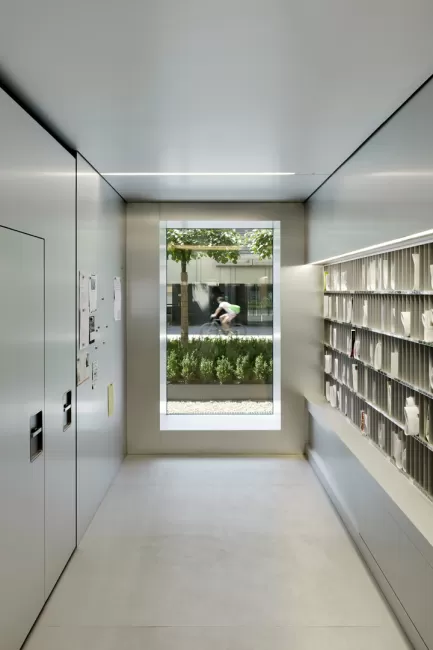
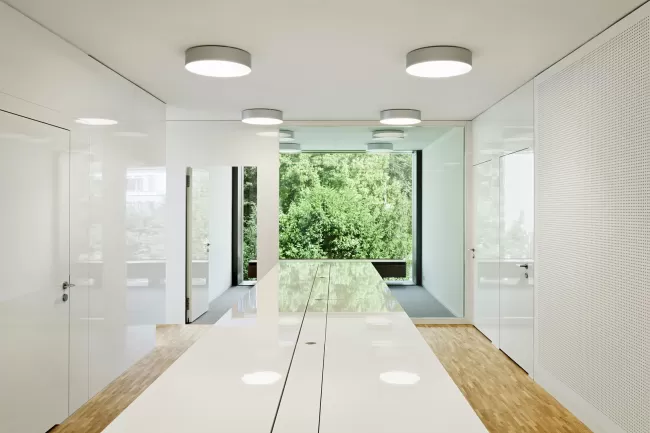
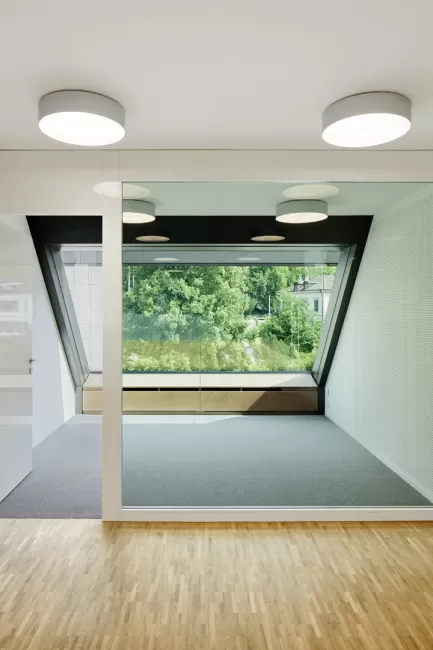
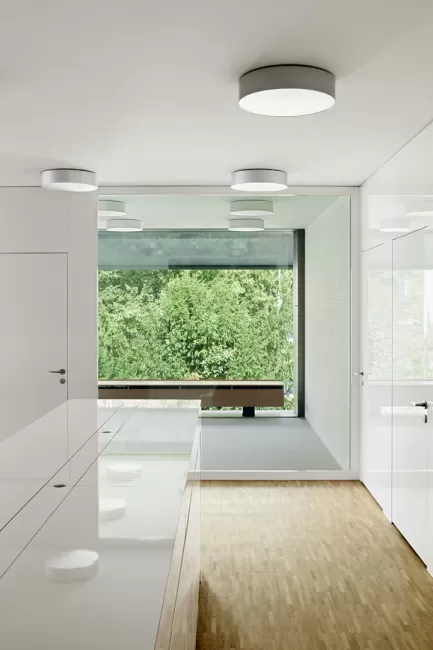
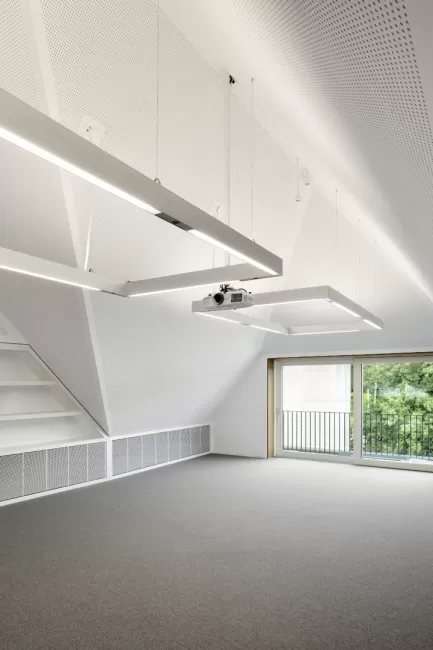

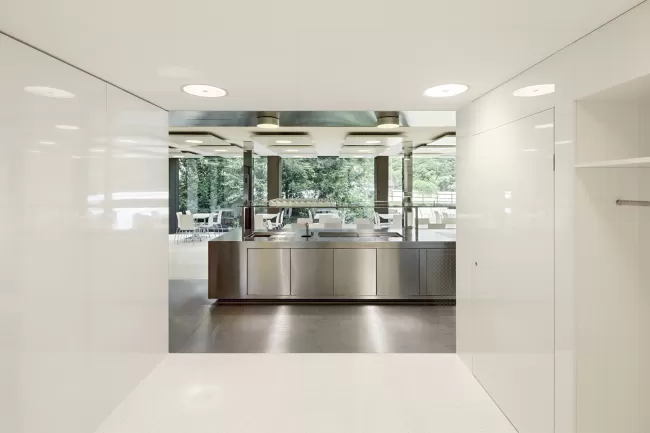
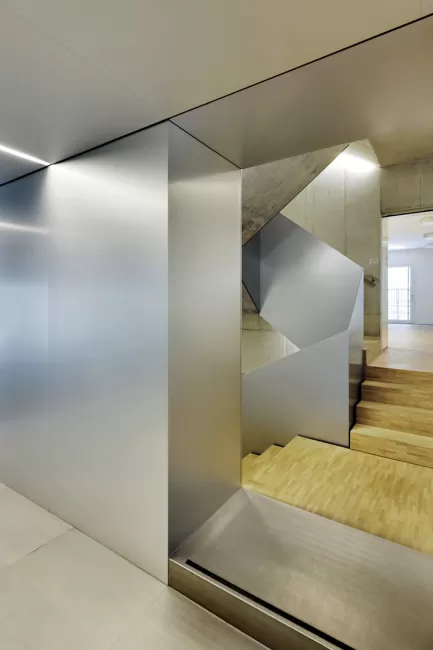

The buildings on Mühlebachstrasse in the centre of Zurich stand wall to wall. In terms of town planning, they form a chain of diverse buildings from different eras. Through the acquisition of the concluding head building, the union of epochs is complemented in terms of utilisation as well. On the courtyard side a structure is envisaged that will align precisely with the old building. Conceived of as a large window, a view will open up of the hidden inner-city garden of the adjoining plot.
The new volume will expand the existing floor area and open up the old building with an expansive gesture towards the outside. The ordering, regulating “front” will thus be counterbalanced by a new freedom in the courtyard.
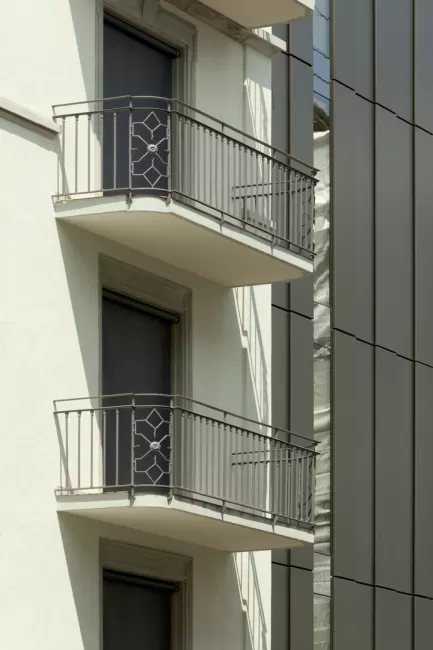
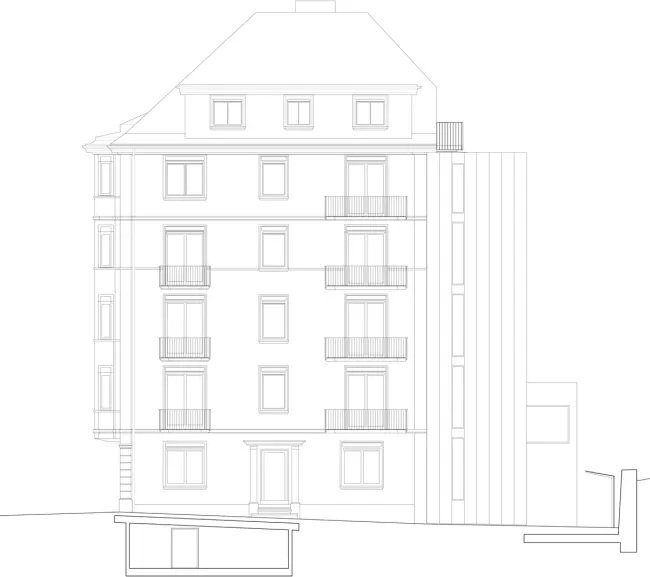
EBP
Mühlebachstrasse 17
8008 Zürich
Switzerland
Construction Management: Witzig Architekten GmbH, Zurich
Building Physics: Zehnder und Kälin AG, Winterthur
Construction Engineering: Ernst Basler + Partner AG, Zurich
Electrical Engineering: Ernst Basler + Partner AG, Zurich
Facade Planning: Ernst Basler + Partner AG, Zurich
Building Services: Ernst Basler + Partner AG, Zurich
Light: Ernst Basler + Partner AG, Zurich
Landscape Architect: Vogt Landschaftsarchitekten AG, Zurich
Photographs: Jan Bitter, Berlin; Jon Naiman, Biel (Models)